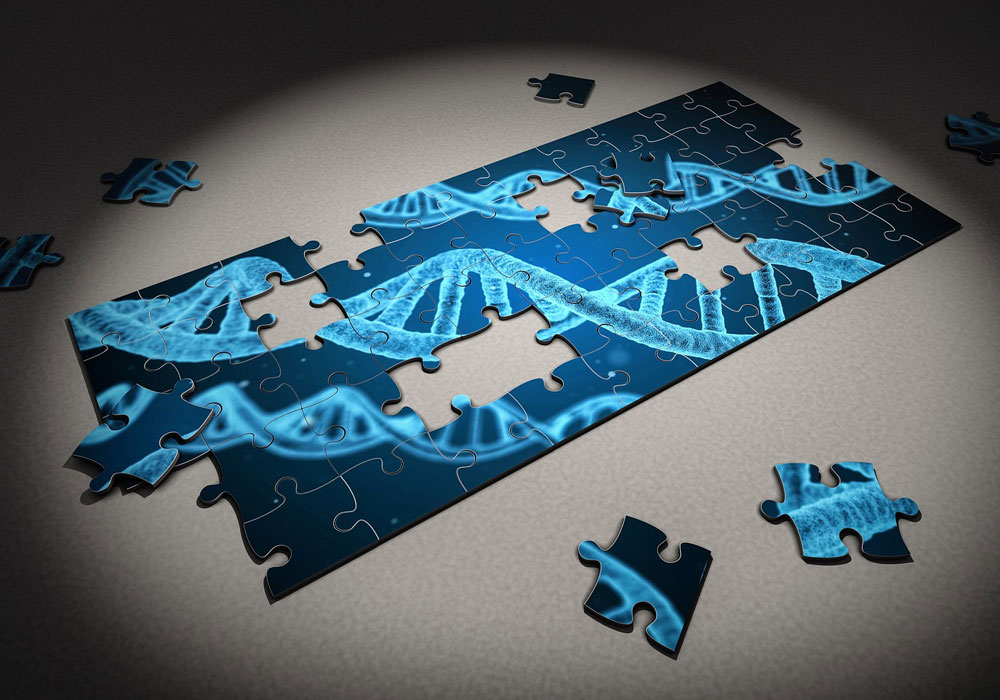Approximately 700 members responded to ONS’s 2020 genomics survey, which gauged oncology nurses’ current genomic knowledge, applications in practice, and the specific questions they have about genetics and genomics. Here are the answers to the most frequently asked questions based on the survey responses.
What does “wild type” (i.e., KRAS wild-type tumor) mean?
Wild type describes a gene as it appears in its natural form or “in the wild.” In some types of cancers, damaging variants have been discovered in certain cancer-related genes. Knowing whether a patient’s tumor has a wild-type (normal) gene or a damaged form of a gene may help plan cancer treatment. For example, in colon cancer, only those with KRAS wild-type tumors should receive cetuximab or panitumumab. If the KRAS gene is damaged, the tumor is not likely to respond to those same agents.
What is the difference between whole genome and whole exome sequencing?
Whole genome sequencing refers to the process of reading all of a person’s DNA (i.e., the genome). The genome contains the instructions for making proteins in addition to all of the complex, specialized processes required to build, regulate, and maintain our bodies.
In contrast, whole exome sequencing is the process of reading only the DNA in the sections of the genome (exons) that contain the instructions for making proteins. The exome accounts for approximately 1.5% of the entire genome.
What is a genetic variant?
A variant is a change in the most common DNA sequence of a gene. Variants are what make each person unique and are described on a spectrum from harmless (benign) to disease-causing (pathogenic).
- Benign
- Likely benign
- Variant of uncertain significance
- Likely pathogenic
- Pathogenic
What red flags in a family medical history indicate an inherited cancer risk?
Genetic red flags are features in a person’s family medical history that may suggest a higher risk than average for developing cancer. Some common red flags include:
- Several first-degree relatives with cancer
- Many relatives on the same side of the family with the same type of cancer or cancers associated with a specific hereditary cancer syndrome
- Young age at time of cancer diagnosis (younger than 50 years)
- Rare cancers or cancers in a sex not usually affected (i.e., male breast cancer)
- Bilateral or multiple primary cancers
What is the purpose of somatic tumor testing?
Somatic tumor testing is used to identify genetic variants present in tumor cells to help identify a potential targeted therapy.
What is the difference between clinical genetic testing and consumer-facing testing (e.g., 23andMe)?
Clinical genetic testing is ordered by healthcare professionals and provides a clinically focused and often more comprehensive analysis of a person’s DNA. The specific type of test ordered is based on what problem or condition is being explored or how the information will be used to manage a person’s clinical care.
Consumer-facing testing, sometimes called direct-to-consumer (DTC) testing, may be purchased with or without a physician order. Usually, individuals are seeking ancestry and health information. DTC testing often looks at only a small number of variants in a given gene. The results may provide some insight into a person’s health risks; however, pathogenic variants may be missed.
For example, 23andMe tests for three pathogenic variants in the BRCA1 and BRCA2 genes primarily seen in those of Ashkenazi Jewish ancestry. Those variants are present in approximately 2% of Ashkenazi Jewish women and 0%–0.1% of women from other ethnic backgrounds. A negative result on this test may not be completely informative for identifying a hereditary risk.
Individuals should meet with a medical professional before making any medical management or lifestyle changes based on their DTC results.
How much does genetic testing cost?
Costs vary by laboratory and range from the hundreds to the thousands of dollars, depending on how many genes are evaluated. In a diagnostic or therapeutic setting, insurance companies cover the cost of testing in many cases.
Additional genomic resources are available through the ONS Genomics and Precision Oncology Learning Library.






